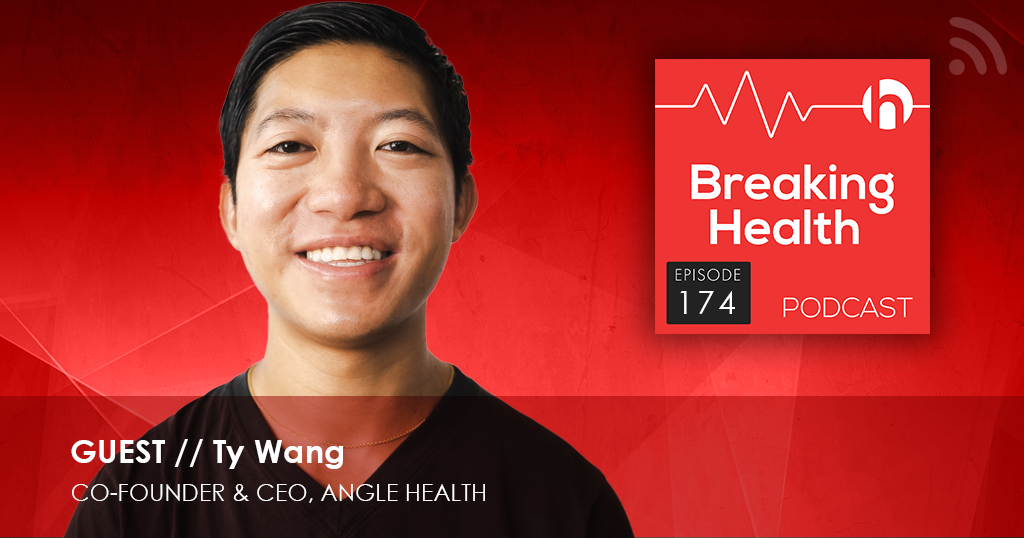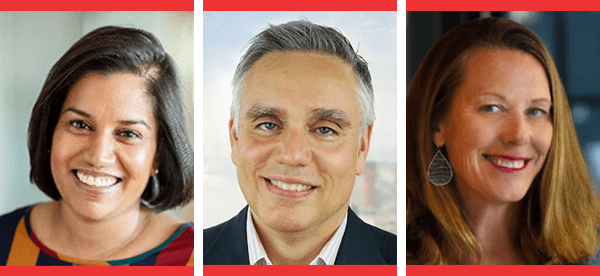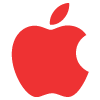Welcome to the Breaking Health Podcast
Conversations between VCs and entrepreneurs typically occur in boardrooms or coffee shops. In the Breaking Health Podcast, you get a seat at the table. Our hosts bring their investor insight to revealing conversations with the most disruptive CEOs in healthcare. Listen to understand how these leaders are building the companies – and fostering the cultures – that will change everything.

Ty Wang, co-founder and CEO of Angle Health, is working to ensure that anyone can access healthcare in a convenient and efficient way. Tune into this episode of Breaking Health, where host Steve Krupa speaks with Wang about shifting from engineering and government to healthcare and creating a platform that delivers comprehensive healthcare benefits while removing administrative barriers. Wang discusses the value proposition Angle Health is putting forth and what member experience is like on the platform, as well as shares advice for entrepreneurs that are at the early stages of starting their own company.
GUEST BIO
Ty Wang, Co-Founder & CEO, Angle Health
Ty is the Co-Founder and Chief Executive Officer of Angle Health, an AI-enabled, member- and patient-centric healthcare company democratizing access to modern healthcare services through its custom, full-service health plans for employers.
Ty and his co-founder, Anirban Gangopadhyay, both came from humble beginnings and grew up in immigrant families, where healthcare literacy and access were especially challenging. They built Angle Health out of their personal experiences and frustrations navigating the healthcare system, with a mission to bring transparency, simplicity, and humanity back to healthcare. Today, Angle Health works with thousands of brokers and employers across the U.S.—primarily serving small- and medium-sized businesses—to provide affordable, high-quality healthcare coverage to tens of thousands of Americans.
Prior to founding Angle Health, Ty led major deployments at Palantir Technologies and spent several years in public service with the U.S. Government across various foreign and domestic posts. He graduated from Washington University in St. Louis with degrees in Electrical Engineering and Systems Engineering. Ty has been published in various academic journals, including Technology in Cancer Research & Treatment (TCRT) and The Journal of Nuclear Medicine.
TRANSCRIPT
Intro:Welcome to the Breaking Health Podcast, a series of discussions with the most disruptive CEOs and leaders in digital health.
Steve Krupa:Welcome to the Breaking Health Podcast. I'm here with Ty Wang, co-founder and CEO of Angle Health. Welcome to the podcast, Ty.
Ty Wang:Thanks for having me here, Steve, excited to be on.
Steve Krupa:All right, so I know a little bit about what you do. I've spent a lot of time in benefits and health plan stuff. But let's start with the fact that you're kind of new to healthcare a little bit. Tell me a little bit about your background and why you decided to do a startup in healthcare.
Ty Wang:Yeah, yeah, that's a great question. You wouldn't necessarily kind of expect it looking at my background, but both myself and my co-founder we're both engineers, so we've known each other for about 14 years now. We worked together in the federal government. We were both part of a scholarship program. That was a full ride as long as we went into a STEM or an engineering field. So I studied electrical and systems engineering at Washington University in St Louis. I spent a couple years at the medical school there as well, working on medical devices and received a few publications through that.
Ty Wang:But after college was over, both my co-founder and I, as part of the scholarship program, we ended up working for the federal government full-time for a couple of years. So after that there was a fairly natural transition, as you can imagine, to Palantir. So both of us coincidentally ended up at Palantir right around the same time as well. We literally all boarded like two weeks apart from each other and ran into each other at the office, which is a really fortunate kind of series of events, because we ended up working together at Palantir as well. If you're not familiar with Palantir's business, healthcare is one of their largest verticals, so we got a pretty intrepid view into how a lot of these large organizations operate large legacy organizations operated, and then I think both of us knew that we wanted to start something at some point.
Ty Wang:One thing that was really striking, having gone from the federal government to a large tech company like Palantir, was just the level of benefits and the healthcare offerings that are available to you at a company like that. It was also a very stark comparison to what I experienced growing up and what my parents experienced. So I grew up in a relatively low-income family. My parents they were immigrants here. They did not have an education and they worked two, three full-time jobs, their entire careers. They were the kind of people that couldn't afford to take time off work to go to in-person doctor's appointments.
Ty Wang:And one thing that I think we really realized, one kind of big insight, was that over the past 10, now 15 or so years there's been this explosion of new ways of receiving medical services. Things like telehealth and telemedicine and digital behavioral health programs and chronic disease management programs and digital pharmacies possible but are still were and are still only available to, I would say, a minority of people, to where a lot of these, especially when you look at kind of the explosion of digital health services that exist. These are all. These are a lot of these services are still primarily distributed through employer benefits, through direct contracts with employers, who are paying these companies six, seven figures a year to offer it as a benefit to their employees, rather than really being tied into the core care coordination of a health plan, which is the way that the vast majority of Americans access health care. Access healthcare.
Ty Wang:You can be pretty certain that it's not your restaurant chains and your retail chains and your manufacturing companies and those kinds of employers that are paying companies like Amana and Livongo and these digital health companies six, seven figures a year to offer that to their employees, but those are the industries and the people that really need access to these kinds of programs, people like my parents. So that was a, I think, kind of seeing that dichotomy and the difference in access to these kinds of services was a big driving factor, and pairing that with kind of understanding how difficult it is for these large legacy companies and incumbents to really incorporate new services into their offerings and to really integrate it well into the care coordination piece. We realized as we started Angle Health that the only way to bring about, I think, what we would consider this modern, tech-enabled experience when it came to something like healthcare benefits and to really democratize access to these sorts of modern healthcare services was to rebuild this health plan stack from the ground up, which is what we did.
Steve Krupa:When you? Well, let me just take the fact that there's a lot there. I just have a side note Can you tell me what Palantir does? They're so mysterious. What are they doing in healthcare, for example?
Ty Wang:At the end of the day, palantir is an enterprise data management platform and Palantir drives the modernization and the workflows of the largest organizations in the world.
Ty Wang:Have these large legacy organizations, whether it's government or whether it's large commercial institutions? They have decades worth of systems and data that is siloed, has similar or the same information in a bunch of different places, but is not integrated, is never in sync, is never connected and, in turn, makes it very difficult for many of these large organizations to answer very simple questions or to be able to unlock the power of all the data that they have in all these different parts of the organization or these silos. And Palantir's kind of main, kind of core product foundry really is the platform that enables these organizations to really modernize their data stack and then unlock much more efficient workflows and unlocks the value and insights from this data that otherwise is slowing them down or is they don't even know that they have. So now Palantir also. So my co-founder was on the machine learning team at Palantir and was building what the kind of initial iterations of what is now Palantir's AI platform.
Steve Krupa:So I think everybody is dissatisfied with the healthcare system generally. It sounds like one of your areas of dissatisfaction is that the hourly workforce if you will, wherever they happen to be working and maybe potentially Medicaid and Medicare but let's start with just that workforce is not able to access digital systems. What else are you concerned about?
Intro:Yeah, I mean, I think there's a lot of things that are broken and there's a lot of things that we're hearing in the market and really are.
Ty Wang:What we're building today is really working to, I think, address some of the macro challenges, particularly within the employer-sponsored market, which is the vast majority for consumers and for the employers, and that's what will really drive kind of the decision making and growth within the space today where we hear it in the market every day. People are tired of the constant 10, 20, 30 percent rate increases year over year and the lack of transparency around those rates and what's going on behind the scenes. And that's especially true for these small and medium-sized businesses where their health plan and their benefits are usually one of the top, if not the top line items after payroll on their income statements income statements. And I think one thing that we view coming back to kind of access to services is brute force. Tools like strict prior authorizations and denials to manage costs are not the way to manage costs, are not the answer.
Ty Wang:It's really the programs that address the underlying issues and the services that improve access and availability to those programs that will drive to things like preventative care programs, chronic disease management programs that will drive down the overall cost of care. So that means being able to deliver services that not only address kind of the underlying healthcare needs but also facilitate a very frictionless member experience, to engage people into these kinds of programs to ultimately prevent disease and manage and improve health outcomes, which ultimately lowers the overall cost of care. And all of these things are what ultimately translates to stable renewals and higher retention, are what ultimately translates to stable renewals and higher retention. Again, it goes back, at the end of the day, to the ability to really integrate, leveraging the data that we have to identify and pair and really integrate these kinds of kind of best-in-class programs for preventing and managing care into the health plan and being able to deliver that to our members and to consumers.
Steve Krupa:You know, I've been looking at the company and the website. I noticed that you list members, employers, providers and brokers as being. You know who you serve. So tell me, what do you think employers want that you are going to give them Exactly? I mean, a lot of people have gone in, you know, to try to fix the care delivery system and that's biting off of. That's a boil the ocean almost task. So, from a standpoint of I'm assuming your customers are the employer groups, is that true?
Ty Wang:That's true. I mean we have a variety of users of the different platforms that we have today, but the customer, the buyer for Angle Health is the employer. Now, the majority of the time, that's facilitated by and in partnership with the brokers, with the brokers that serve the employers and the brokers that we partner with there.
Steve Krupa:And when you, when you so, when you call on an employer, what is the value proposition that you're putting forth and what is the? What is the motivation? What you know, people only buy when they're in trouble or growth mode, right? So what trouble or growth mode are your customers in? That they're willing to make a change with a new company?
Ty Wang:Well, I would say that's not necessarily true. I think the health plan and health insurance is actually one of those is an industry that's fairly stable, regardless of the economic situation or the larger macroeconomic situation. It's something that people always need here in America and it's something that employers need in many cases, depending on the size of the employer are required to provide. So the big question for them, and really what they're looking for, goes back to kind of what I was mentioning earlier, which is certainty, stability, stability and transparency too, and, alongside that, the programs to help them ensure and to help us ensure, that we're able to continue delivering that stability, because we're helping them really better manage the healthcare needs of their employees really better manage the healthcare needs of their employees when we're talking about the product itself.
Ty Wang:So what we are able to deliver that's very unique to the market as well is that we offer fully custom health plan products to these small and medium-sized businesses, where our employers and their brokers are able to design exactly the benefits that meet the needs of their clients and of their employees, of the members that will be on this plan, rather than having to choose off of a set of a few kind of off-the-shelf products that may or may not meet the needs of their employees not meet the needs of their employees. We enable our customers to design, both customize on the group level and then deliver a personalized experience through Angle Health and through our various programs on the individual member levels. So that is one of the biggest values that we're able to provide to the employers themselves. And really what we're doing is unlocking products that historically were only available to much larger companies, companies with thousands, tens of thousands of employees, these fully self-funded employers. We're bringing those sorts of products and that level of customization flexibility down to companies with 10, 20, 30 employees.
Intro:Are you enjoying the conversation? We'd love to hear from you. Please subscribe to the podcast and give us a rating. It helps other people find and join the conversation. If you've got speaker or topic ideas, we'd love to hear those too. You can send them in a podcast review.
Steve Krupa:So is this an overlay to a government product like the exchange product or a small group product that might be offered by a local nonprofit or one of the large national plans? Do you sit on top of that or are you replacing that altogether?
Ty Wang:No, we replace that altogether, so we're a full stack health plan. We are really what we need today. What we started at was a full stack health plan. Today we're really an AI native integrated healthcare company. So our core products are custom full service health plans for employers, where we have fully insured products. We have level-funded products and self-funded products and we really are full stack in that. So we own and operate a fully licensed health insurance carrier. We are a third-party administrator, we have a managing general agency and we also have a healthcare services side of the business delivering products and services like Angle Advocacy, which is our concierge care navigation service.
Steve Krupa:Awesome. So if I'm an employer, generally speaking, who is your competition?
Ty Wang:Yeah, we're competing. The vast majority of the time we're competing against a BUCA plan, a United, a major fully insured plan or another level funded plan.
Steve Krupa:And how's it been going. How's the discussion's been going?
Ty Wang:Yeah, it's good. I think we're probably one of, if not the fastest growing health plan in the country. We launched back in 2021. Today we serve customers in close to 40 states and close to 40 markets. We have tens of thousands of members. We serve a couple thousand employer groups today and we've been able to deliver consistent industry-leading metrics across loss ratios for our employers and their self-funded plans, as well as industry-leading retention rates across. So I think the market has been very receptive to what we've been able to deliver to them and I think the uptake the broker and benefit consultant uptake so the partners that are now working and quoting Angle Health see this as a competitive advantage for their firms as well being able to offer an Angle Health product to their clients.
Steve Krupa:I assume that you're renting networks, so you can provide the provider coverage that you need, or are you building them yourself?
Ty Wang:Yeah. So we have a variety of network options and that's one of the value props we're able to deliver through Benefit Builder, which is the tool that our customers use to build custom plans. So we enable our clients to select the provider network that they want to offer as part of their plan, and we also enable them to select from a variety of PBM and pharmacy partners, as well as a few other services. But, um uh, we do a partner on the network, on the network side, um uh and um yeah, and that that enabled, really enables us to uh allow our employers to optimize on the coverage or the providers, or a lot of it is really regional based, so uh, allows them, allows them to really optimize for what is the best fit for their company and their employees and where their employees are located.
Steve Krupa:So what's the member experience?
Ty Wang:like, like, there's a lot of people trying to work on that, as you know.
Steve Krupa:So you know, what do you know that they don't know?
Ty Wang:Yeah, when you become an Angle Health member, we want you to feel like you're stepping into a new kind of health care system, one where it's not incumbent solely on you to have to understand the complexities of things like health insurance and benefits and what these obscure terms like co-pays and co-insurances and deductibles and whatever mean deductibles and whatever it means, but really have an advocate and have it be a very frictionless experience where you don't have to understand how to navigate the healthcare system on your own.
Ty Wang:And that's really what we're trying to deliver here is a truly kind of integrated healthcare experience, and our members don't see us as this kind of financial layer, this, this, this, this, this company that they have to fight with or deal with to to get anything done, but really as a partner in health where we have members that come to us for anything health care related, whether it's administrative, whether it's clinical, and and we're able to navigate them to the highest quality, most appropriate point of care, and we really view ourselves as the most consumer-aligned, member-aligned healthcare company and health plan in the world. And that's the experience that we're delivering to our customers today.
Steve Krupa:Have you done any analysis as to how you're doing in terms of managing costs and the issues around utilization and so forth? I mean, half of the problem is you don't know what to do when you're a member. You know you're supposed to go see the cardiologist, but you have no idea what's ahead of you.
Ty Wang:Yeah, and that's actually exactly the problem that we're solving with services like Angle Advocacy, where, as soon as you leave the cardiologist's office or the oncologist's office, you're really kind of left on your own, you don't really know what to do after that.
Ty Wang:You're in between courses of care and our advocacy team really serve as a resource for anything that you need and also to meet with you as much or as little as you need to, as you want to engage, to really take that burden off of you as a patient, as you're going through a very difficult time, a very difficult time. So I think the biggest proof is in our loss ratios, where we're driving medical loss ratios in the high 70s and the low 80s for our customers, which is pretty much as low as you get, which is pretty industry-leading.
Steve Krupa:And you're working through an ASO model, I'm assuming, so you're not taking risk at this point.
Ty Wang:So it depends on the product. So we are risk bearing, but it depends on the on the product. So we have both fully insured products as well as a level funded, which are, which are self-funded products, where we are the TPA administering their self-funded plan.
Steve Krupa:Oh, there's so many more questions I could ask you. So last thing when did you start the company?
Ty Wang:Well, we started the company really in 2020. We're a YC company, so we went through Y Combinator back in the beginning of 2020.
Steve Krupa:Okay, and so you got any advice for our friends out there that are entrepreneurs, that are either in the midst of starting a company, have started a company, will start a company. What's one of some of the keys to getting it going and getting it in good shape?
Ty Wang:Yeah, I mean the biggest, I think, piece of advice is to really just go for it and don't be afraid of especially within the healthcare space, a lot of things are highly regulated, but don't let that be a deterrent and really the challenges that come with that become moats and become areas that make your business that much more defensible in the long term. Uh, yeah, the the hardest thing is to is is to take the, take the dive and and and to go for it. But once you're in it, um, uh, it doesn't get easier but, but, but, but.
Ty Wang:Then you have no choice but to make it work. So it helps to have a good partner right that as well, yeah, so, uh, I think one of the most important things, especially in today's day and age, is that, as a founder, you either are technical or you have co-founders or people around you that are technical, and I think any business that gets started today really needs to be an AI-native company. Otherwise, you're starting off behind already.
Steve Krupa:Absolutely. I 100% agree with you. Tai Wong, the co-founder and CEO of Angle Health. It's great to have you here. Thank you for your time.
Ty Wang:Thank you, steve, it was fun.
Do You Have
A STORY TO TELL?

If you’d like to be considered as a guest on a future episode of the Breaking Health podcast, please complete the application today.
Meet Our Hosts

Payal Agrawal Divakaran, .406 Ventures
Steve Krupa, HealthEdge
Michelle Snyder, McKesson Ventures
Subscribe ON iTUNES

Don't miss an episode. Join the conversation by visiting our podcast channel on iTunes today and subscribe. It's fast and free!